Among the myriad of aquatic species, one stands out, captivating both locals and distant food enthusiasts alike, eagerly awaited every summer. It is the Da River’s glass fish, a tiny, translucent creature, often referred to as the “water gem” of the Da River.
Glass fish (also known as crystal fish or milk fish) boasts an appearance that surprises everyone at first sight. They are minuscule, measuring only 5-7 cm in length, with a body as white as snow or as transparent as glass. Unlike typical fish, glass fish have no hard bones, only a soft cartilage framework. This unique structure results in an incredibly tender, delicate meat that melts in your mouth without the worry of bones.
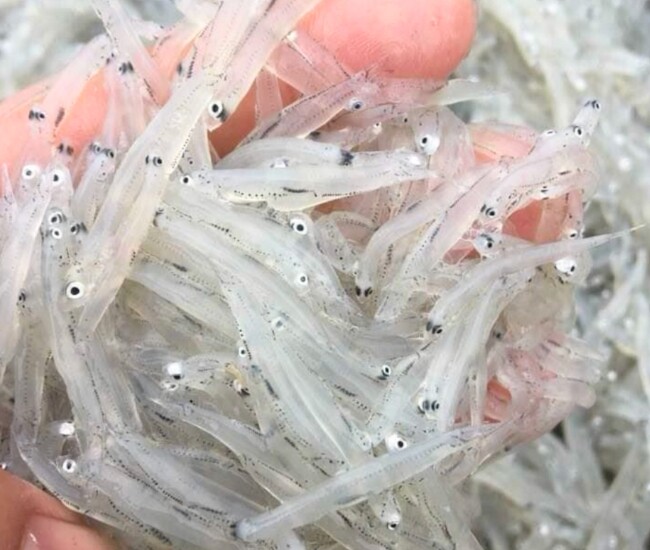
Da River’s glass fish, a tiny creature with a body as clear as glass, devoid of hard bones, melts instantly in your mouth. Appearing for only a few months each year, this rare and sweet delicacy is a sought-after specialty for food lovers everywhere.
Glass fish inhabit only the cleanest, clearest, and gently flowing waters of the Phu Tho hydroelectric reservoir. Their primary diet consists of microalgae and plankton, which contribute to their nutritious, naturally sweet, and completely non-fishy meat.
While many fish species can be farmed, glass fish are exceptionally “picky” and cannot be bred in ponds. Their entire population relies on natural catches, making them a rare delicacy.
Locals report that glass fish appear from April to July each year, peaking in May and June. During this time, they gather near the water’s surface, allowing fishermen to catch them with fine-mesh nets early in the morning or late in the afternoon. Their brief 1-2 month season makes glass fish a “rare commodity” eagerly pursued by connoisseurs.
On the market, glass fish can fetch prices up to hundreds of thousands of dong per kilogram. Their scarcity and exceptional taste make diners feel like they’re savoring a “gift from heaven.”
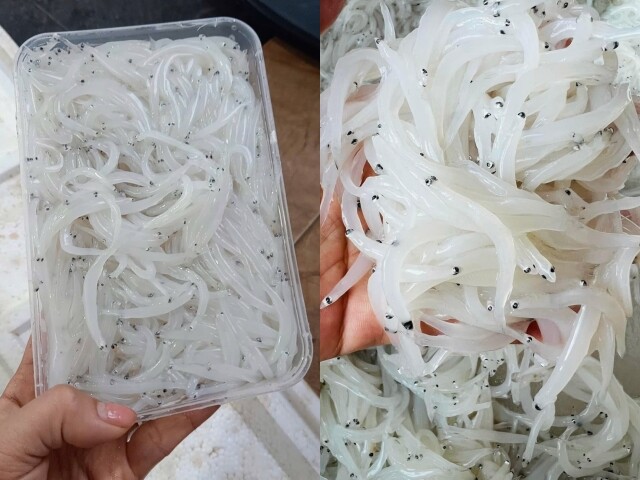
The meat of glass fish is tender, snowy white, and virtually boneless, melting instantly in your mouth with a sweet, fresh taste and no fishy flavor. Thanks to their habitat in pristine waters rich in microalgae, glass fish are a nutritious, wholesome food, aptly named the “water gem.”
Glass fish can be prepared in various ways, from simple home-cooked meals to elaborate feasts. People in the Northwest often prepare it in the simplest ways to preserve its natural flavor: steamed with lemon leaves, hotpot dipping, or fried with eggs. Each dish offers a unique experience.
Steamed glass fish with lemon leaves: Tender meat, subtly fragrant with ginger and lemongrass, served with a rich lemon chili fish sauce.
Crispy fried glass fish: Golden brown exterior, crispy outside and tender inside, perfect for children.
Sour soup with glass fish: Combined with starfruit, morning glory, dill, and tomatoes, creating a refreshing summer soup.
Glass fish stir-fried with eggs or mushrooms: Familiar yet unique, popular in restaurants.
Some chefs even creatively use glass fish in nem (spring rolls) wrapped in lolot leaves or as a topping for bun (rice noodles) or pho, showcasing the versatility and appeal of this specialty.
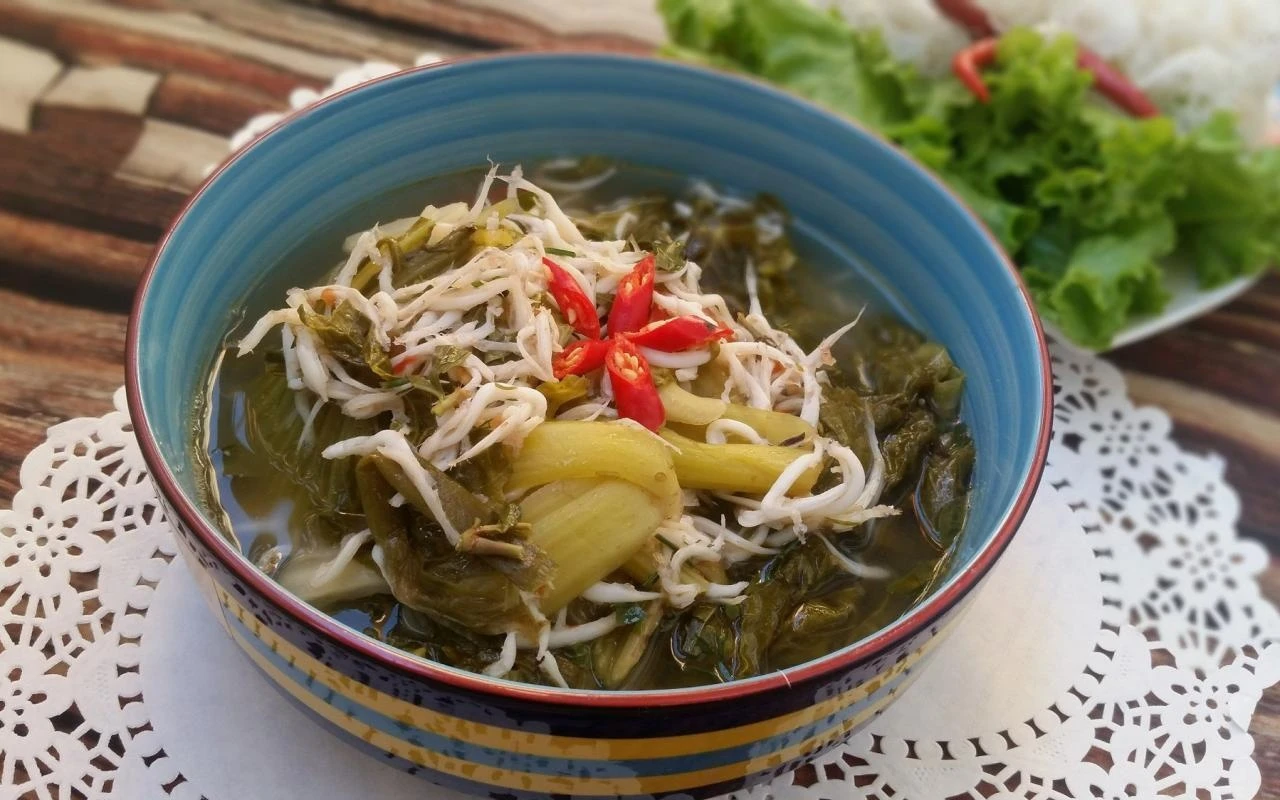
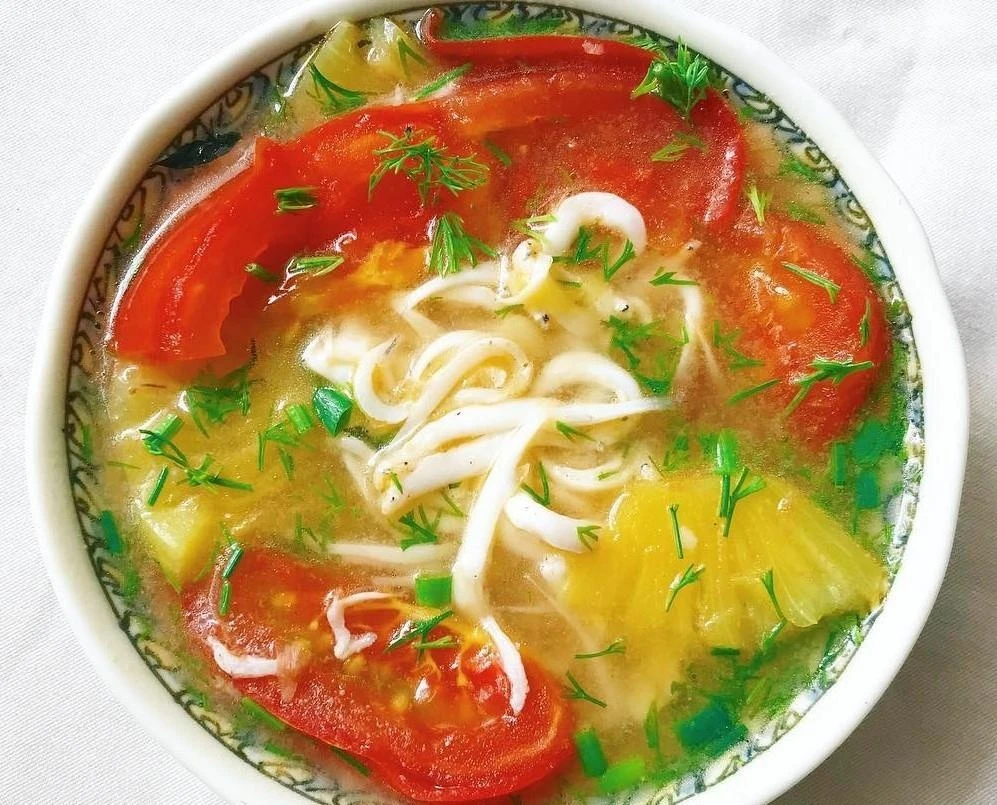
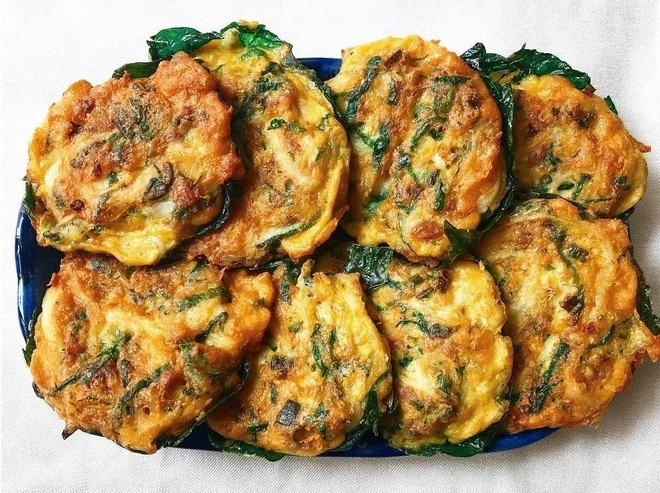
Glass fish can be prepared in various ways: steamed with lemon leaves to preserve its freshness, crispy fried to a golden brown, sour soup for a refreshing summer dish, fried with eggs, or stir-fried with mushrooms. Each dish offers a unique experience, from rustic to refined, making glass fish an unforgettable specialty of the Da River.
During the glass fish season, fishermen along the Da River can harvest dozens of kilograms daily, providing a significant income. This is truly a generous gift from nature, contributing to the economic well-being of the reservoir communities.
Without fanfare, the Da River’s glass fish quietly appears like a “water gem,” only to vanish in the brief summer months, leaving behind fond memories. Enjoying glass fish is not just about savoring its unforgettable taste but also about appreciating the rare gift that nature bestows upon the Northwest region.






























